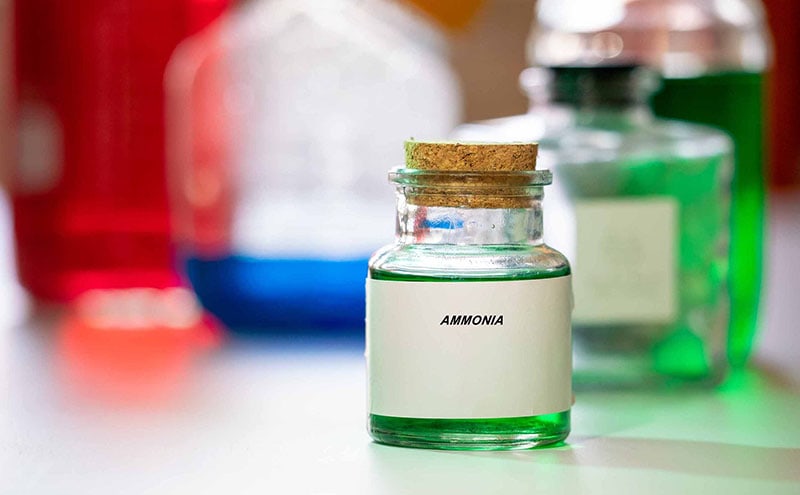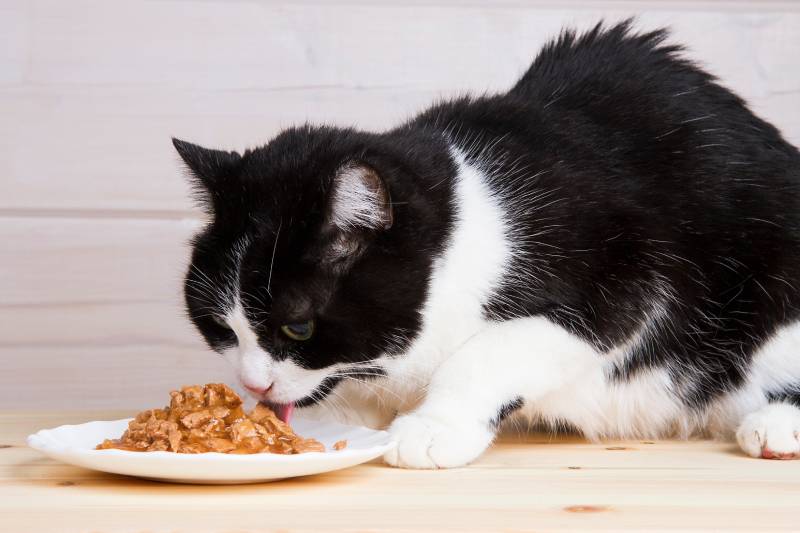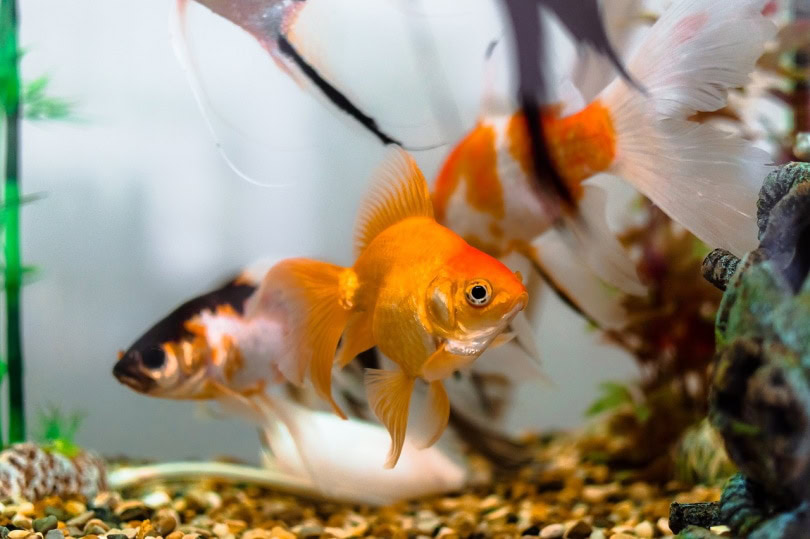VET APPROVED

The information is current and up-to-date in accordance with the latest veterinarian research.
Learn more »Click to Skip Ahead
Ammonia is a powerful chemical with many uses, in both an industrial and domestic setting. It can be found in many cleaning products, pesticides, and fertilizers. It is known for being fantastic at cutting through grime and removing dirt, but it has also been found to be effective in killing several types of insects, including fleas.
Pet owners who are fans of home remedies to control flea and pest problems may want to use ammonia to kill fleas because it’s easy to use, can be purchased in many places, and is cheap and effective. However, it is also caustic, can be poisonous to pets and humans, has a strong odor, and is much less effective at dealing with fleas when compared to other methods available. Let’s take a closer look at ammonia, and some other solutions for dealing with fleas at home.

What Is Ammonia?
Ammonia is a naturally occurring chemical compound which results from the breakdown of organic matter. Made up of Hydrogen and Nitrogen, it is what fish excrete, and is similar in structure to the urea in mammalian urine, or the uric acid that birds produce.
It is a very alkaline solution (opposite of acidic), and its caustic effects is what makes it a powerful disinfectant.
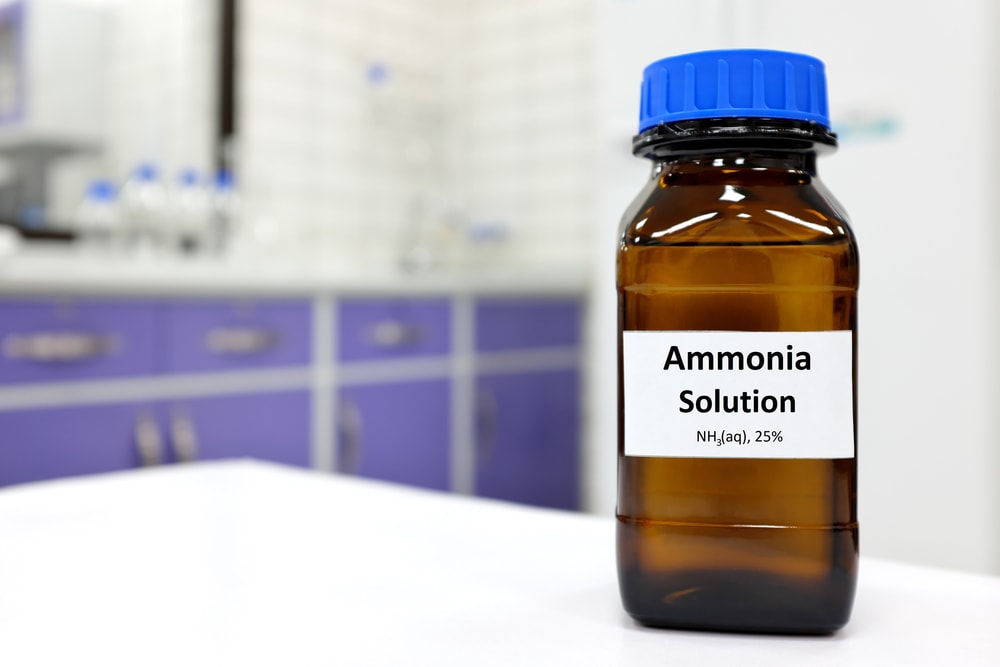

Is Ammonia Effective at Getting Rid of Fleas?
Ammonia can kill fleas quite effectively by causing respiratory failure. However, the chemical properties that make ammonia such an effective disinfectant and insecticide, can also pose a risk to your pets and family.
The caustic nature of ammonia means that it can be highly irritant to skin, and its fumes are extremely harmful if inhaled. If used without diluting it correctly, it can be dangerous. Another disadvantage of using ammonia in the house if you have cats is that the chemical properties it shares with urea will often cause cats to mistake it for feline urine, and try to cover the scent with their own.
With a long list of alternatives to use in and around the home, we would suggest using one with fewer risks. In order to effectively use ammonia to tackle fleas, you would need to apply it in multiple areas, increasing the risks of causing harm and distress to your pets.
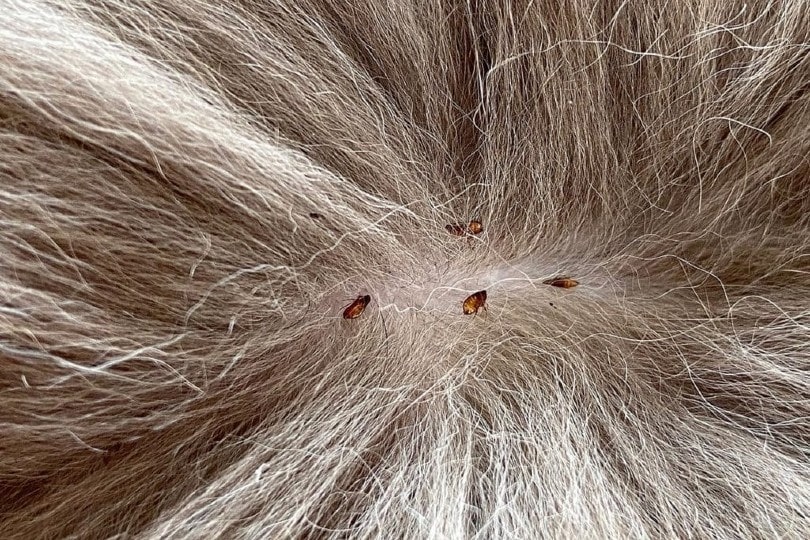
What Is the Best Thing to Kill Fleas?
The most effective way to get rid of fleas is to prevent them from occurring in the first place, as they can become a real problem to get on top of once an infestation occurs. And the best way to do this is using a prescribed flea medication from your vet.
Due to many conditions such as central heating and increased weather temperatures, fleas have become a year-round issue. Therefore, it is advisable to apply prescription preventative treatment all year round and treat your home with an environmental spray should you notice any signs of fleas.
- Use medication that is safe for your pet, is labeled for the correct species, and contains active ingredients proven to work.
- Be consistent with your chosen treatment to avoid resistance developing
- Find the right product and combinations of treatments that work for you and your pet. If one is difficult or tricky for you to apply, don’t use it! Find another that has a better fit.
- Protect and treat all pets in the home
- Treat both your pet and their surrounding environment.
If you are looking for some more natural methods of keeping your home flea-free, there are a few alternatives you can try.

Conclusion
Fleas are annoying, and no one likes or wants them in their homes, and when faced with these jumping, itch-inducing insects, we may be tempted to reach for a cheaper solution, or one we already have in the cupboard at home. Although ammonia will kill fleas, it is a chemical that can have serious health consequences if used incorrectly. Even when diluted and used correctly, ammonia can still cause skin and airway irritation, and could trigger a formerly clean cat to start urinating indoors. Fortunately, there are easier, safer, and more effective options and products available.
- https://healthresearchfunding.org/home-remedies-killing-fleas/
- https://pestcontrolhacks.com/does-ammonia-kill-fleets/
- https://www.preventivevet.com/pets/pet-safe-home-cleaning-products
- https://entomology.ca.uky.edu/ef628
- https://pubmed.ncbi.nlm.nih.gov/7362273/
- 3-household-cleaners-that-are-harmful-to-pets
Featured Image Credit: luchschenF, Shutterstock
